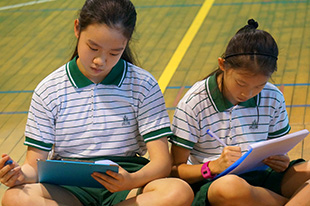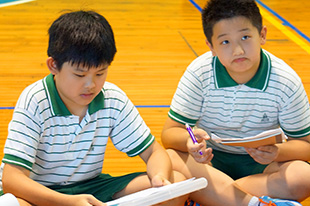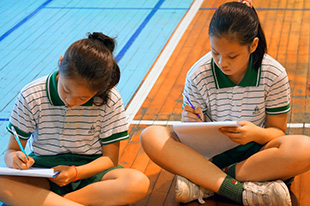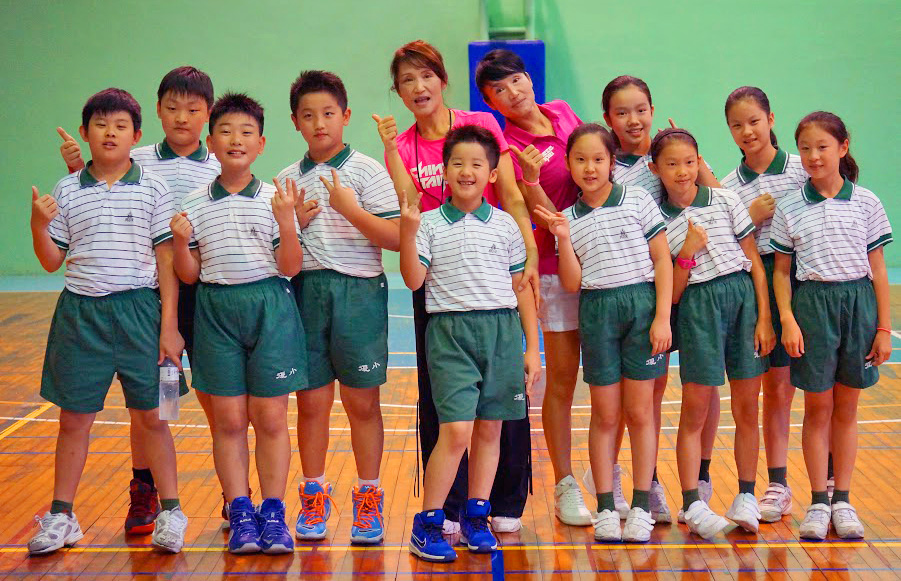| |
| |
|
|
|
|
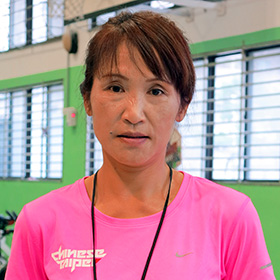 |
|
| |
Ms. Pi-cheng Teng
| Education: |
| • |
Master’s Degree from graduate school of Coaching, National Taiwan Sport University |
| |
|
| Experience: |
| • |
Member, National Women’s Basketball Team |
| • |
Member & Coach, Oriental Institute of Technology Women’s Basketball Team |
| • |
Instructor, Oriental Institute of Technology |
| • |
Coach, Oriental Institute of Technology Men’s Basketball Team |
| • |
Coach, Chinese Taipei Deaflympics Women’s Basketball Team |
|
|
| |
|
|
| |
|
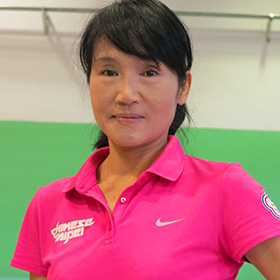 |
|
| |
|
Ms. Pi-yun Teng
| Education: |
| • |
Master’s Degree from graduate school of Coaching, National Taiwan Sport University |
| |
|
| Experience: |
| • |
Member, National Women’s Basketball Team |
| • |
Member & Coach, Oriental Institute of Technology Women’s Basketball Team |
| • |
Instructor, Oriental Institute of Technology |
| • |
Coach, Oriental Institute of Technology Men’s Basketball Team |
| • |
Coach, Chinese Taipei Deaflympics Women’s Basketball Team |
| • |
Coach, National Women’s Basketball Team |
|
|
| |
|
|
|
| |
| Interview with the Renowned Coaches |
Q1: Why were you willing to take over the Deaf Women's Basketball Team given the players' poor foundation in basketball?
A1: In the eyes of a basketball coach, basketball skills should be taught to all people without discrimination. As long as the players are interested and enthusiastic about the game, we would be willing to guide them to take the first steps, not to mention that these players were very diligent and cooperative.
Q2: Of all the games that the Deaf Women's Basketball Team has participated in under your leadership, which one impressed you the most?
A2: We were most impressed by the final game the team played against Japan in the 2014 Asia Pacific Cup held in South Korea. When the first half was over, the score was 2:2, the lowest score I had ever seen since I devoted myself to basketball. Since both sides could not score, the key of the game shifted to defense. In the second half, therefore, I assigned two players specifically to defend the major shooters of the Japanese team and told them to follow these shooters closely for the entire game. They did a good job. In the end, we defeated the Japanese team by three points and won the first international champion for the team since its establishment.
| |
|
|
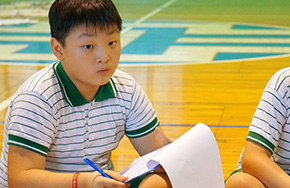 |
|
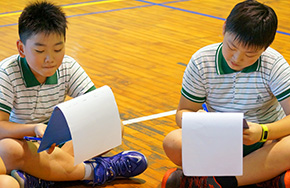 |
| |
|
|
Q3: How is training players with hearing loss more difficult than training normal players?
A3: Most of the hearing-impaired players do not play basketball since childhood, hence their poor foundation. Given the limited training time and inconvenience in communication, this team is of course different from a normal team. We are therefore required to be more loving, patient and spend more time to teach these players from scratch. At first, we ignored these differences and spoke too quickly. Realizing that most of them were not born with hearing loss but acquired it later, they are more proficient in reading lips instead of using sign language. We learned to slow down when we speak.
Q4: During the six years as the coach of the Deaf Women's Basketball Team, what do you think are the strength of these players?
A4: What is so different about players with hearing loss is they will do their best when it comes to something they know, and they try to work on the things they do not understand by raising questions until they fully understand the objectives and key points of the training. They do not play for money, but for interest. They would not care if the court lacks air conditioning or other equipment. These are the qualities I admire very much and the reasons why I like them so much.
| |
|
|
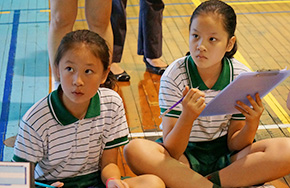 |
|
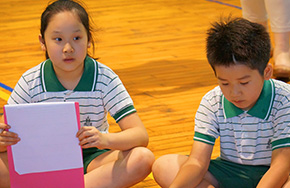 |
| |
|
|
Q5: During the time as the coach of the Deaf Women's Basketball Team, is there anything that strikes you the most?
A5: After the Deaflympics, we have seen many players come and go. In this January, Yu-hsuan Liao, a high school student, joins the team because of her admiration for the national basketball team. Since this is the first time she has ever left home, she would cry at the beginning of every training session. But she finally manages to complete the training and becomes happy, after which she could even help new members to adapt to the team under similar circumstances. As expected, she stood out in the World Deaf Basketball Championships and was an important part of our attack. I believe she will be a primary strength of the Deaf Women's Basketball Team in the future.
Q6: In the process of working as the coach of the Deaf Women's Basketball Team, what has been the biggest transformation?
A6: We have trained many players, normal ones and hearing-impaired ones. For every player, "basic movement" is the key to success and that is why one third of a day's training has to be spent on that. After this training is done, "defense" and "physical strength" are also the indestructible rule of success in basketball. During the training, some players would practice selectively or negotiate with the coaches given their better foundation, thus stimulating a sense of unfairness for players who fully devoted themselves to all practices. For these skilled players who do not want to spend time on practices, we'd rather ask them to leave. Holding on to this principle, I now focus on the players that are fully engaged in the practices. And I believe it is for this reason that Deaf Women's Basketball Team is successful.
| |
|
|
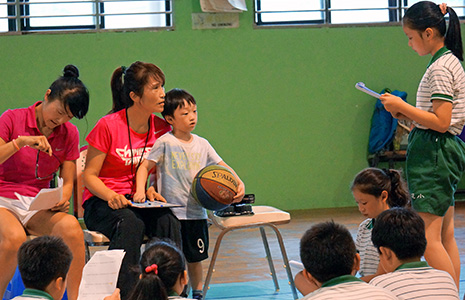 |
|
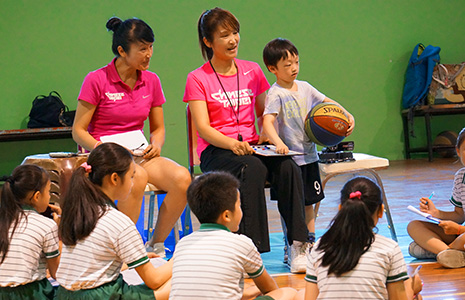 |
| |
|
|
Q7: How do you find motivation to continue when not all the players can make it for the practices?
A7: To begin with, the number of hearing-impaired basketball players is limited. Since their mastery of the basic movements is poor, we simply focus to adjust the basic movements of individual players when not all of them are present. And no matter how many players come, we as coaches have to be there. Seeing us taking it so seriously, it will give the players incentive to take it even more seriously. When all the players are present, the basic movements of individual players would have been perfected, so we can move on to defense and attack drills. As long as the players show up and learn, we feel the meaning and the sense of accomplishment.
Q8: How do you resolve the funding issues of the Deaf Women's Basketball Team?
A8: We simply do our best to seek all kinds of connections and try every means to secure sponsorships to meet the basic needs of the team. In addition, there are people like you. Your interview will be very helpful to our team; these are the resources and motivation behind the growth of our team. Thank you for your love and support!
| |
|
| |
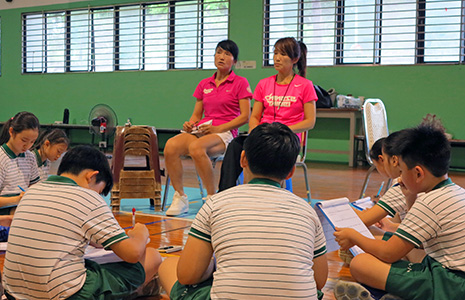 |
| |
|
| |
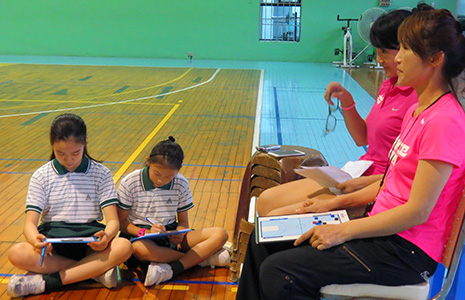 |
| |
|
Q9: Aside from the lack of players, are there any other problems necessary for the Deaf Women's Basketball Team to overcome?
A9: The main reason why nearly half of the players that have played in the 2009 Deaflympics are leaving the team this year is that they have to think about how to make a living and give thoughts to their life planning now that they have graduated from schools. Since they are no longer students, they will not be able to take the day off to practice as randomly as before. Therefore, they have to leave for now. As their coaches, we want to encourage them to prepare well for the civil service exams or help them secure jobs so that they can continue to play basketball in the future without hesitations. Although the training expenses and court are the basic requirements for a team and used to be our problem, we now have a regular training court and have arranged all the training sessions on weekends. As for accommodation, they could either live with their relatives or with us. We want them to know that whatever their problems may be, we are always there to lend a helping hand.
Q10: What are the goals or expectations you have for the Deaf Women's Basketball Team?
A10: We hope that the Deaf Women's Basketball Team can be ranked among the top six teams in the 2017 Deaflympics and strengthen its leading role in Asia. Only when they win in international games could the people of our country pay attention to them and help them. I am very much looking forward to seeing them forging a path of their own. Keep on fighting! Best wishes!!
|










